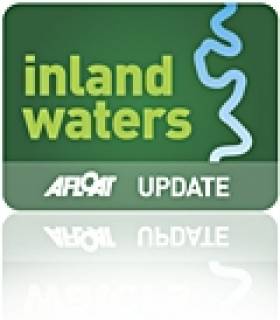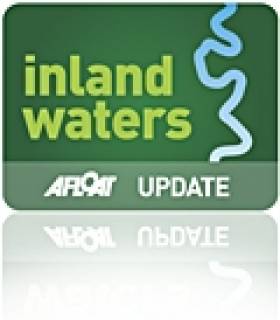Displaying items by tag: Paul Garland
Shannon Sinkings Result of Poor Winter Preparation
Owners of boats moored on the River Shannon and its tributaries and the inland waterways are counting the costs of the recent icy conditions which have caused the sinking of a high number of vessels.
The Irish Times reports that the Inland Waterways Association of Ireland (IWAI) has advised all boatowners to check their boats after reports of sinkings across six counties.
Among the sunken vessels are a 35ft cruiser opposite the Landmark Hotel in Carrick-on-Shannon. The worst situation is reportedly in Shannon Harbour, with an unusually high number of boats sunk or partially submerged.
Sunken boats often require full refitting to replace damaged finishings and damaged electronics. But of greater concern is the potential environmental impact due to fuel or oil spills, or the leaking of antifreeze and other chemicals.
The IWAI has blamed poor 'winterisation' as a factor in the sharp increase in sinkings.
Winterisation involves the closing of sea cocks to prevent water entering the intake pipes and potentially bursting them when it freezes, or leaking when it thaws.
"Owners need to check on their craft regularly or have a local do it," said IWAI president Paul Garland. "The lessons learned this winter must be taken seriously. Heaters may not be enough; all sea cocks have to be shut."
Click HERE for Afloat.ie's advice on protecting your boat in the thaw.
New Powerboat Branch Launched by IWAI
To raise the profile of Irish powerboating at a time when power-boaters are the most likely target for regulation the Inland Waterways Association of Ireland (IWAI) has formed a new power-boating branch. It will be the twenty first branch of the association.
The move mirrors a similar adoption of powerboat interests by the Irish Sailing Association who appointed a powerboat officer to promote the interests of this sector of the sport.
The objects and ethos of this new IWAI branch is to promote the use of the inland waterways to the many people who use Powerboats, RIBs, PWCs and Sports boats from Trailers and Marinas anywhere on the island of Ireland and indeed further afield.
The first meeting will take place in Cox's of Dromod, Co Leitrim on Fri 21st. Jan at 7.30 PM, a committee will be elected, a calendar of events will be approved, but most importantly, says IWAI President Paul Garland "we need founding members, like minded people to help develop this new Branch Single Membership is Euro44 & family is Euro 55 per annum and all of the privileges of IWAI membership apply with quarterly magazines over 200 organised events, training, funding, but most importantly lobby power with four thousand members our voice has become known as the voice of the waterways and with increasing legislation we have found the voice of powerboat users is simply not being heard".
More from Paul Garland on 086 8217712

























































